



























Whether your talents are in negotiation and people management, you are great at budgeting, or you enjoy working with cutting-edge technology, there is a satisfying career ahead in the construction industry.
By pursuing a career in construction you can be involved in designing, planning and developing projects that can make a real difference to the human race. Whether you are office-based, working behind the scenes, or on site making these plans a reality, you are helping create a better environment for all those benefitting from the projects. You’ll be in a job where every day brings fresh challenges and where you can point to a skyscraper, school or hospital and say “I built that.”
If you’re ready to be part of something exciting that makes a difference, take a serious look at a rewarding career in construction.
WHAT CAN THE CONSTRUCTION INDUSTRY OFFER ME?
Construction is a large and stable industry. People will always need new buildings, and existing buildings will require refurbishment and new purposes, so there will always be a demand for construction industry workers.
The size and diversity in the industry means that there is a huge range of exciting and rewarding construction jobs to choose from. This booklet will help you find the roles that are best matched to your skills and talents.
The UK has Europe’s largest construction spend and growth percentage since 2017 Construction is the second highest sector in the UK’s economy to receive funding
Skilled construction professionals are highly valued in all areas of the industry, and construction can offer you a long and rewarding career. Depending on your employer, you may also be able to undertake additional training to learn cutting-edge skills, helping you to further your career in the long-term.
36% of construction industry workers are self employed (compared to 13% across the whole economy)
Construction is one of the largest sectors in the UK economy, employing 2.7 million people and over 9% of the UK workforce
The construction industry contributes £117bn to the UK economy each year
Nearly 300,000 companies in the UK are connected to the construction industry
The construction industry needs young, enthusiastic and dedicated people to enter its ranks. Between now and 2025, the UK construction industry will need to recruit an additional 217,000 new workers in order to meet demand, however there is a skills shortage that means this target will be challenging to meet.
The skills shortage in construction has been a growing concern for construction companies, and as more time goes by, the problem becomes increasingly pressing. One of the main reasons for the UK skills shortage — specifically in the construction industry — is an ageing workforce. At the moment, 22% of the workforce are over 50 and 15% are in their 60s. As construction workers reach retirement age, fewer people are entering the industry to replace them.
Part of the reason for this is that despite the myriad opportunities available, many young people have never considered working in construction and are in many cases not aware of the wealth of diverse and satisfying career paths that construction can open up for them.
Whether you are most comfortable outdoors working with your hands, or you have a talent for computer aided design, or you love working with numbers, there are construction industry careers to suit you.
Almost one in five small and medium sized businesses in the UK are construction companies
The construction industry pays on average 5% higher than the UK’s national average salary. New entrants can expect an average starting salary of £19.5k with salaries rising with experience, responsibiltiy and seniority to over £100k

Are you a people person? Are you a problem solver?

The Job: Construction managers run building sites and liaise with architects, planners, engineers, surveyors, tradespeople and suppliers, bringing together the expertise of all involved to ensure that projects are completed safely, on time, and on budget. They are also described as project managers.
You’ll usually need a foundation degree, HND (Higher National Diploma) or several years of industry experience in an area like:
The People: Construction managers need to be good leaders, who can guide and motivate their team effectively. They must be keen problem solvers and forward planners. They should have great people skills and be confident presenting and debating ideas in meetings. They will also have an in-depth knowledge of all aspects of the construction business, are well organised, and have numeracy skills.
Your work would typically include:
• Discussing construction proposals with the design team and client
• Making sure work proceeds on time according to the construction programme
• Managing the work and safety of all staff working on or visiting the site
• Monitoring progress, costs and checking quality
• Reporting regularly to the client and design team
• Liaising with the local authority and third parties to ensure the building is constructed to building regulation standards and planning permission
• Building engineering
• Surveying or civil engineering
• Construction engineering
• Construction site management
• Estimating
You could get into this job through higher education or degree apprenticeship.
You can follow this with becoming chartered by the Chartered Institute of Building (CIOB). This improves your chances of getting a job after your studies.
Do you have a talent for numbers? Are you great at budgeting?

The Job: Quantity surveyors manage and advise on the financial aspects of a construction project. Quantity surveyors work closely with the client and their own team to ensure a project is efficient, stays on budget and is profitable.
Quantity surveyors usually hold a relevant, accredited degree in Quantity Surveying, or follow a work-based route doing a surveying apprenticeship that can include a qualification in surveying.
You can follow this with becoming chartered by the Chartered Institute of Building (CIOB) and/ or the Royal Institution of Chartered Surveyors (RICS). This improves your chances of getting a job after your studies.
The People: Quantity surveyors are like the accountants of the industry, enjoying high levels of responsibility. They are comfortable working with numbers, analysing drawings or written information, and reporting back to the client or design team. They also have a thorough understanding of the building process and the legal issues involved.
Your work would typically include:
• Working out estimates for materials, procurement time and labour costs
• Advising on costs and values of projects
• Negotiating and drawing up contracts
• Forecasting the project’s predicted costs and monitoring the actual costs
• Reporting on budget to clients
• Advising clients on legal and contractual matters
• Keeping records, preparing work schedules and writing reports
• Working closely with the construction managers
Do you love technology? Are you creative?
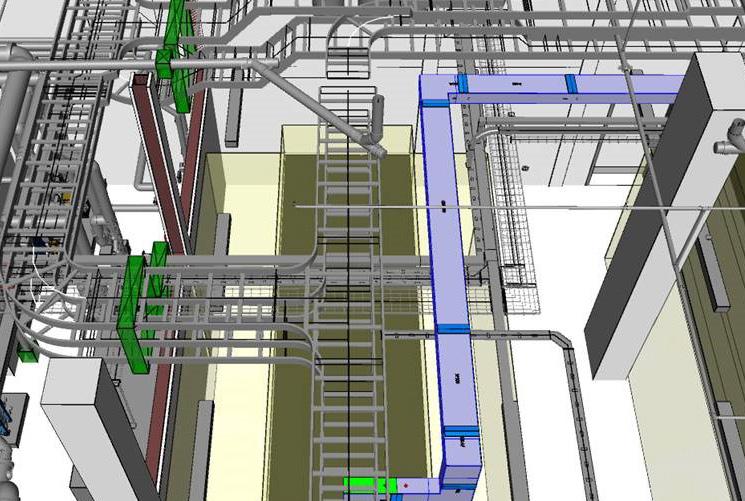
The Job: A design manager is responsible for coordinating the design work across the construction project, from the work of design teams and architects, through the planning phases, to final construction. Design managers make sure that all necessary information is shared among the teams involved in both design and construction, so that the finished project delivers the client’s expectations.
You may be able to enter this role without formal qualification requirements, but it’s generally more accepted if you complete one of the following qualifications:
The People: Design managers must have a strong technical aptitude, and be interested in gaining an understanding of design considerations as well as legal, programming and commercial issues. Good communication and interpersonal skills also help, as well as strong organisational and project management skills.
Your work would typically include:
• Coordinating the design between the design team and the subcontractors
• Working with clients to ensure their requirements are fulfilled and expectations met
• Making sure design information is available to those who need it, when they need it and documenting all processes
• Ensuring compliance with changing legislation and codes of practice
• Reducing health and safety risks in the design
• BTEC in Building Studies, Building Engineering or Building Management
• Higher National Certificate (HNC) /HND/degree in Construction Management or Architecture or their equivalent
• BSc in Design and Construction Management
Further qualifications – and chartered status – can be gained through courses accredited by The Chartered Institute of Building (CIOB) or Chartered Institute of Architectural Technologists (CIAT).
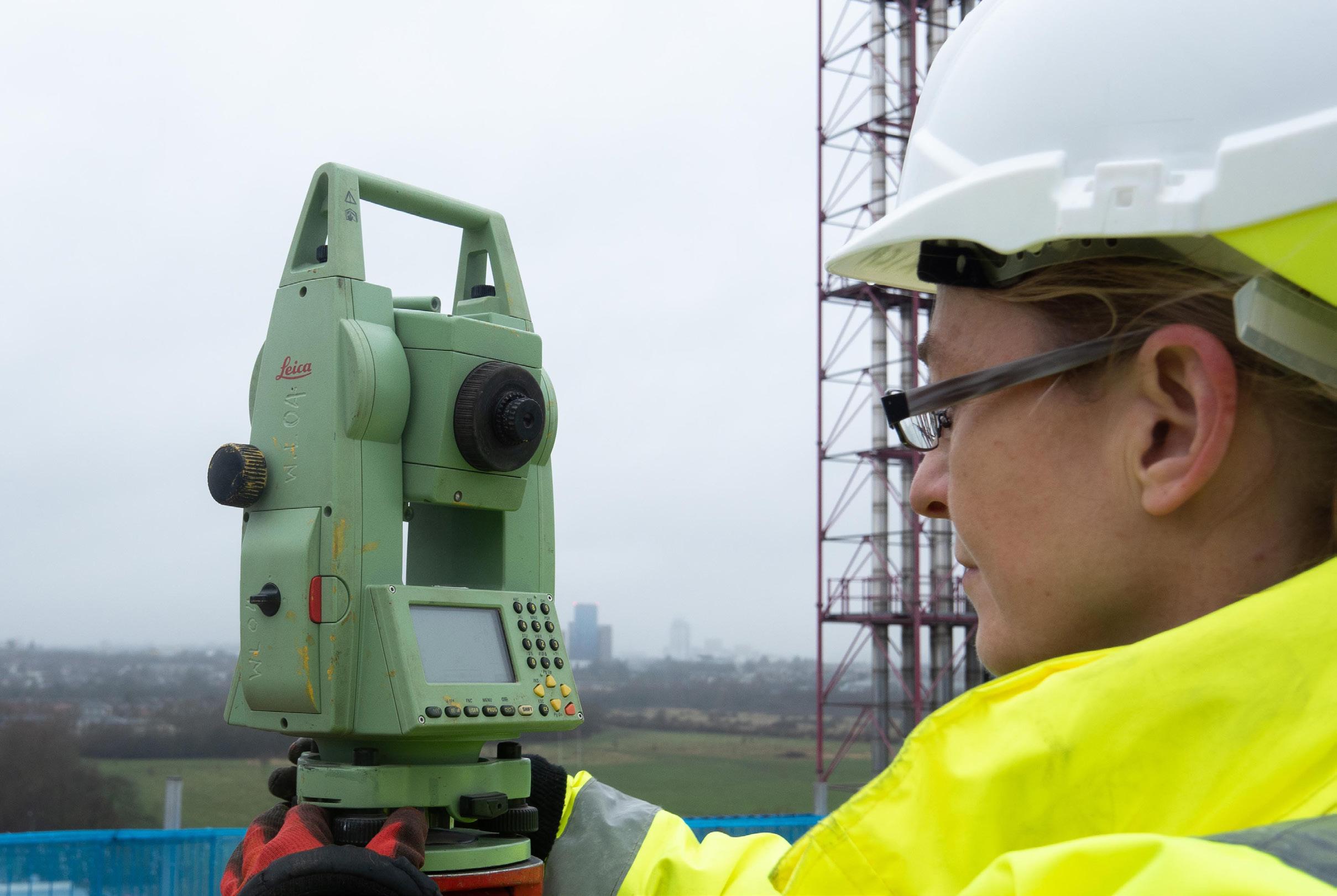
You will usually need a foundation degree, HND, or a engineering degree.
• You can do a foundation degree, higher national diploma, or degree in engineering. You can apply for a postgraduate master’s award in engineering if you’ve got a related degree like maths, science, or geology.
• You can take a HNC or HND at college, which may help you find work as a trainee engineer.
• You could complete a engineer degree apprenticeship.
• You could start as a engineering technician and study part-time for a degree while you work.
You can follow this with becoming a qualified member of ICE (MICE), increasing your career and salary prospects.
The Job: A construction engineer is a type of engineer who plans, directs, and supervises large construction projects. Most construction engineers specialise in a specific type of project such as commercial buildings, heavy highway and transport, industrial, or residential buildings.
The People: Construction engineers need strong analytical and leadership skills so they can solve technical engineering challenges. They are creative, they think outside the box, and find often innovative solutions to solve one-of-a-kind problems.
Your work would typically include:
• Managing the planning and design of engineering elements
• Contributing technical expertise to project drawings and designs
• Overseeing construction engineering processes
• Organising regular tests on materials and procedures to ensure compliance with industry regulations
• Documenting processes and keeping detailed construction logs
• Ensuring compliance with changing laws and codes of practice
Are you great at solving problems? Are you technically minded?
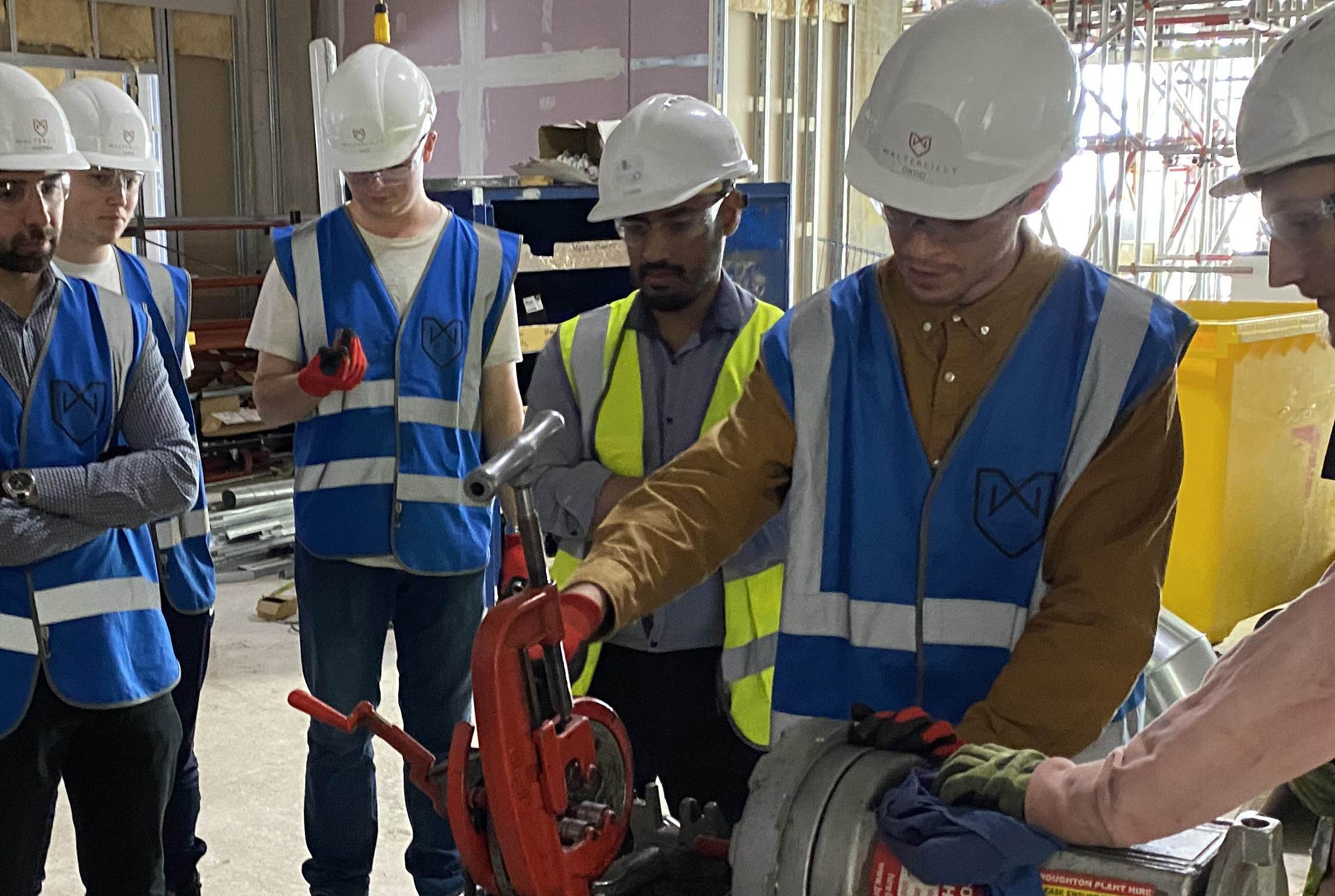
The Job: Building services managers are responsible for ensuring that all mechanical, electrical (including life safety systems) and public health systems perform effectively, efficiently and in-line with the client’s expectations. They ensure the building’s operational requirements are achieved and put life into the building to create a comfortable and safe place to live, work or learn.
There are routes into a career as a building services manager for both university graduates and school leavers.
The People: Building services managers should be technically minded and have good teamwork skills. They will need excellent people skills to communicate effectively with their own team, clients, designers and subcontractors. Good technical knowledge, logical thinking and excellent problem solving skills will also help a building services manager’s role.
Your work would typically include:
• Planning how gas, electricity and water will be distributed around a building
• Testing and checking installations
• Making sure the project meets building regulations and health and safety requirements
• Advising clients on how the building services will operate once the building is complete
Many building services managers begin as electricians or plumbers and move into building services management from there.
Graduates typically need a degree in an area such as building services engineering, architectural engineering, mechanical engineering and electrical engineering. It should be accredited by an appropriate professional body, such as CIBSE or IMechE.
Once a construction project is underway, the buyer procures materials, labour and plant equipment and ensures they are delivered on time and within budget. The buyer also contributes to the selection of suppliers.
Planners create a programme of work needed on a construction project, sequencing the activities to achieve the most efficient schedule of work. They are responsible for monitoring that the progress of the project is in line with their proposed timelines.
Estimators help with the preparation, processing and submission of tenders (this is the way contractors get most of their work) by costing estimates for a project and finding the best suited subcontractors to work with on the job.
A Health and Safety manager carries out site inspections to ensure that the site environment is safe and meets legal requirements. They investigate any accidents that occur to prevent recurrences, facilitate risk assessments, and try to think of ways to improve the safety of the working environment.
A supply chain manager manages the relationship between the main contractor and the various subcontractors and suppliers of products and services. They are responsible for sourcing suitable subcontractors and suppliers for the main contractor.
3D visualisers use computer modeling software to create technical drawings and three-dimensional building designs. 3D visualisers need to have excellent artistic, technical, and computer skills.
Roles in IT, marketing, accounts and human resources are also needed in almost every business, including construction companies.
The industry needs electricians, plumbers, bricklayers, plasterers and many more. There are apprenticeships available for all of these roles, and the need for academic qualifications is usually limited.


A traineeship is a work based skills development programme that includes a work placement. To be eligible for a traineeship, you should be aged 16-24, be unemployed with little or no work experience, have no qualifications above GCSE, and most importantly - you must be keen and motivated to work and learn!
All traineeship costs are covered by the government scheme so there are no fees to pay. There is no salary as a trainee, but it will give you valuable skills and experience with real life situations, as well as the opportunity to get industry connections and references to enhance your CV.
Working full time with one day a week at college or university, an apprenticeship provides you with a mix of academic study and real work on site. An apprenticeship is a great way to start a career in construction.
An apprenticeship gives you:
• A recognised national qualification from a college or university – up to degree level.
• Paid work with a construction company.
• The support of a mentor throughout your studies.
• On-the-job assessments.
T-Levels are a two-year qualification equivalent to three A-Levels. T-Levels are designed to provide you with classroom based teaching in specific job-related skills and training, and also give you a guaranteed industry placement of at least 45 days to give you a chance to gain realworld experience as well as learning the theory. T-Levels are a new option for 16 to 18 year olds after their GSCEs.
A degree course offers an excellent education for future construction industry professionals by providing you with the knowledge and skills in technology, management, processes and commerce to succeed in industry, and by placing a strong emphasis on developing interpersonal and professional skills through education and experience.
Sponsorship will provide you with a bursary during your study, summer placement work for those who want it, and a paid twelve-month placement with your sponsor company. In many cases, students are offered employment with their sponsor company after graduating.
With a variety of ways to start a career in construction, it can be difficult to know which route is most suited to you. The table below lets you compare some options to see which one is the best fit.

Working with both your employer and a training provider gives you plenty of hands on skills 1 day per week at university, 4 days in full time employment Optional 3rd year placement 3rd year placement
No tuition fees - earn as you learn. Varies depending on course and employer. Non-sponsored students must pay university fees. Sponsored students must pay university fees but receive a bursary from the sponsoring organisation
Is construction a male dominated industry?
At present, only 14% of construction industry professionals are women, however that figure is rising as more than one third (37%) of new entrants to the UK construction industry from higher education are women. They are doing a full range of jobs from working on site as supervisors and project managers, to engineers and quantity surveyors.

While the construction industry does have a large environmental impact, lots of jobs in construction are focused on sustainability and green technologies, which mitigate negative impacts and help protect the environment during and after construction. Energy use and the use of harmful materials, ecology, pollution, waste and water management are just some considerations that go into the design of a new building. For example, use of solar panels can reduce energy usage, and effective insulation improves energy efficiency.
In the construction sector, disabled workers make up 14% of the workforce. More and more employers are ‘disability confident’ - meaning they have the knowledge and understanding to accommodate employees and prospective employees with disabilities for an inclusive workplace. Is construction bad for the environment?
Can differently abled people and people with disabilities work in construction?
Is construction an old-fashioned industry?
Construction is an exciting industry at the cutting-edge of new technologies. Modern construction uses the latest technology and pushes its development, including 3D computer modelling, survey drones and nanotechnology to develop new materials. Building methods and materials are constantly developing, although traditional methods of building, such as stone masonry and thatching are essential to maintain older, listed buildings.

I
Does the construction industry lack diversity?
Recent figures show that the UK’s construction industry is predominately white and male, disproportionate to the overall demographics of the UK - however we know that diverse workplaces operate more effectively and diverse teams make better decisions as homogenous groups are prone to greater unconscious bias. The demographics of the construction industry are now changing in a positive way and more black, asian and ethnic minority people are entering the construction industry. You can be part of that positive change in the construction industry, and help realise the ambition of a diverse and inclusive thriving industry.
While there are many hands-on practical jobs on site, the construction industry is a lot more diverse than that. From design management and quantity surveying where you will be working with schedules and spreadsheets more often than you will be wearing a hard hat, to roles such as planner and estimator for people who enjoy analysis and numeracy, to roles that require great communication, leadership and negotiation skills, there are a wide variety of job descriptions to suit all sorts of talents, interests and aptitudes.
ASHARRN FALCONER
ROLE: Construction Management
ROUTE: Sponsored University student

“Hello! I’m Asharrn, a third year Loughborough University student studying Construction Engineering Management.
Walter Lilly is a part of the consortium that sponsors my university course. The experience I had with the company during my placement year was tremendous. In my time with Walter Lilly, I’ve worked on two projects. One of the projects was a basement build at the start of the project life cycle and the other a full renovation of the dwelling that I joined at the end of the project life cycle.
Everyone I met was more than welcoming and upheld the family work environment I had heard so much about. In both projects, the team members had an abundance of knowledge and were willing to impart it to me, to help me gain the most out of my placement.
The team members were very diverse in their backgrounds and routes they took into the industry, which was amazing as they all brought something unique to the project.
Over the course of my placement, I have learned loads, met some great people and made some great memories… that’s all you can ask for really.”

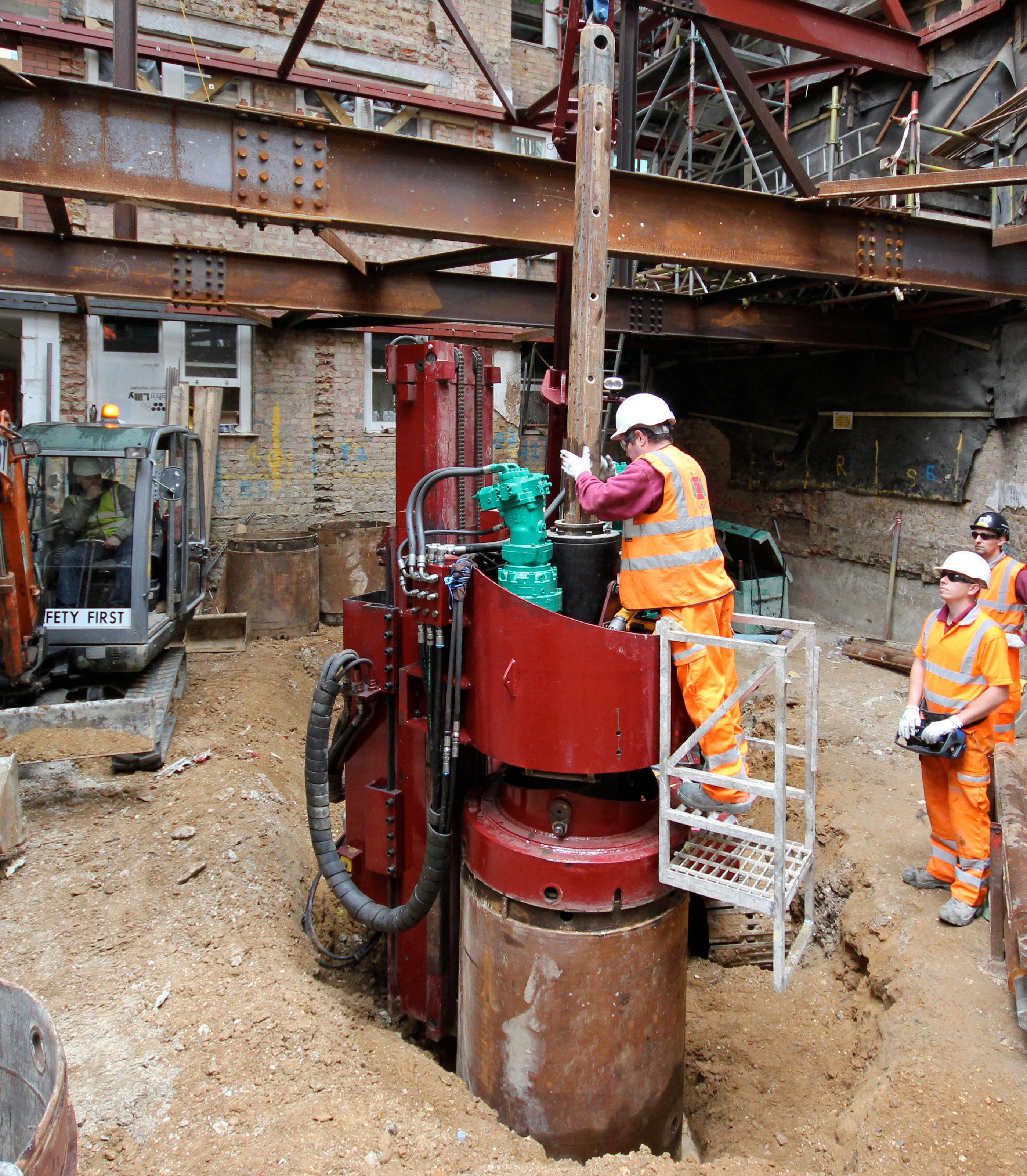
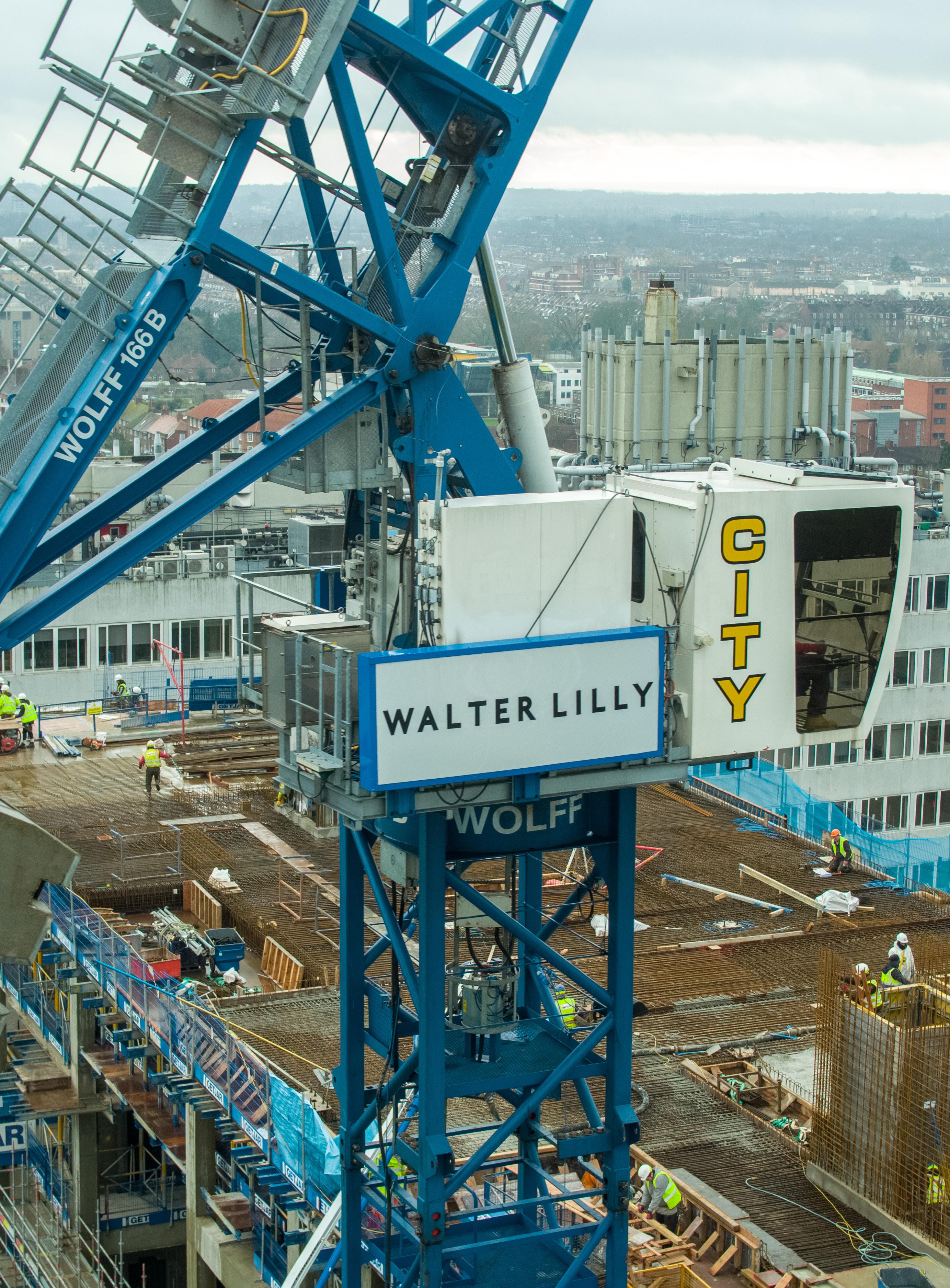


HANNAH TYERS
ROLE: Quantity Surveying
ROUTE: Degree Apprenticeship
“Hi I’m Hannah. I’m currently studying Quantity Surveying and Commercial Management at The University of Westminster and will graduate in 2023. I am on the five year part time course and will be entering my penultimate year of study in September.
Over the past year I have been involved in Walter Lilly’s largest current science project. It has given me insight into the procurement and tendering process, technical aspects of the build, and more - and I look forward to the knowledge I will gain as the project continues. As I have progressed through my studies, I have been given more and more responsibility to arrange payments, review design changes and assess impacts when multiple trades start on site.
One major benefit of an apprenticeship is you can experience real life scenarios that you can only read about during university lectures. For me, this is a great way to learn. In the construction industry there are also many factors that they won’t cover in a university course; dealing with a global pandemic to name one. You gain invaluable first hand experience with construction techniques, on site measurement and contract administration and the opportunity to build a strong team bond with colleagues and teammates”

A main contractor, also known as a principal contractor, manages the construction of a building project. We find the best, most appropriate tradespeople and artisans to work on a project, organising and coordinating their work to build the project efficiently and safely within the client’s budget and timeframe.
Walter Lilly has been in business since 1924. During this time, we have worked on many prestigious projects for Palace of Westminster, the National Trust, English Heritage and the Crown Estate, and world-leading pharmaceutical companies.
We’ve been sponsoring construction courses at Loughborough University since 1998 and have built a close relationship with the Civil and Building Department at the University.
Walter Lilly also supports a number of trainees from London universities through their NVQs and degrees on a part-time basis. Our day release programme provides students the chance to learn through on the job experiences as well fulfilling their academic study.

Follow us @walterlilly1924



Find out more on our website www.walterlilly.co.uk

















